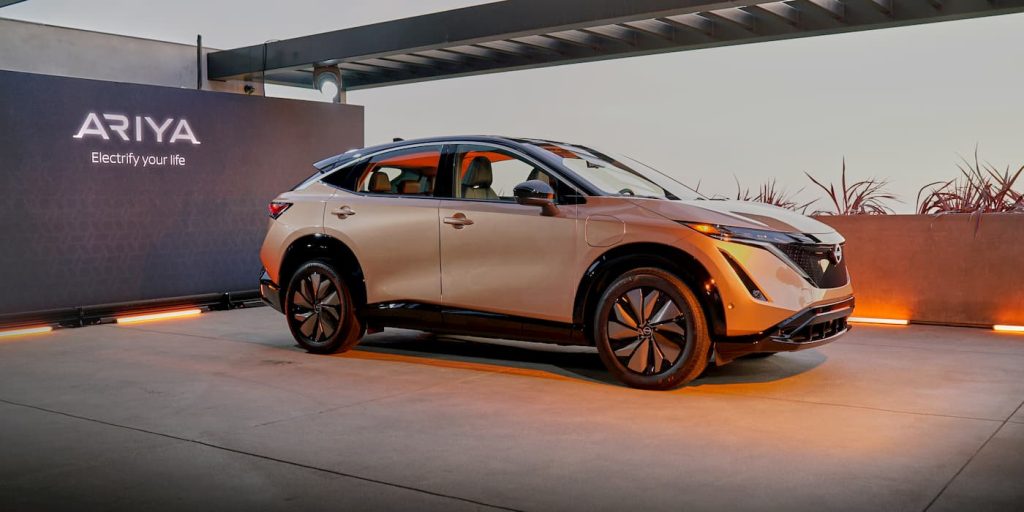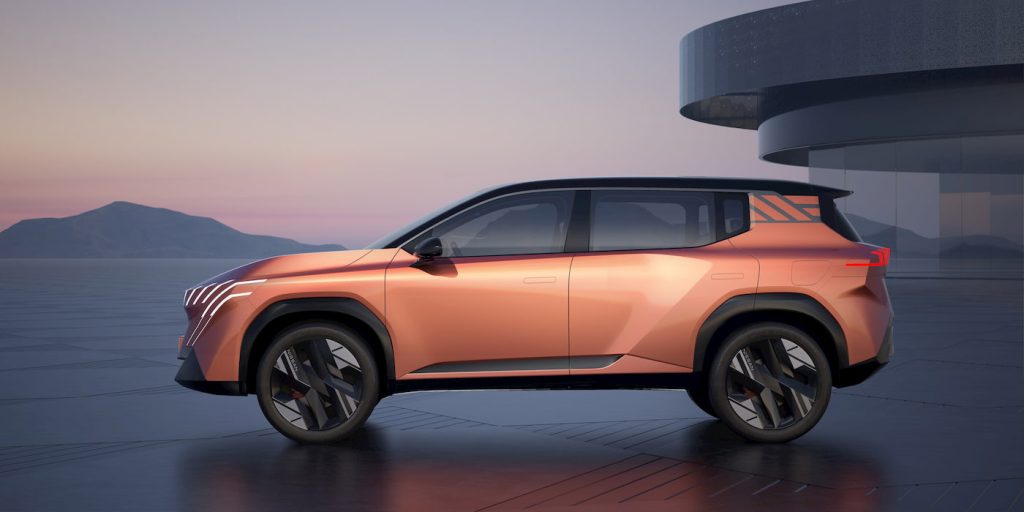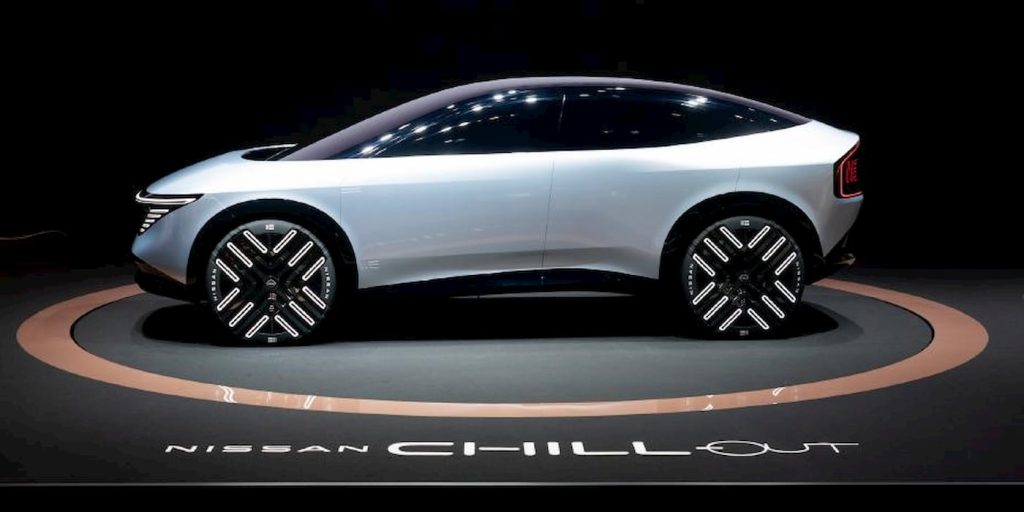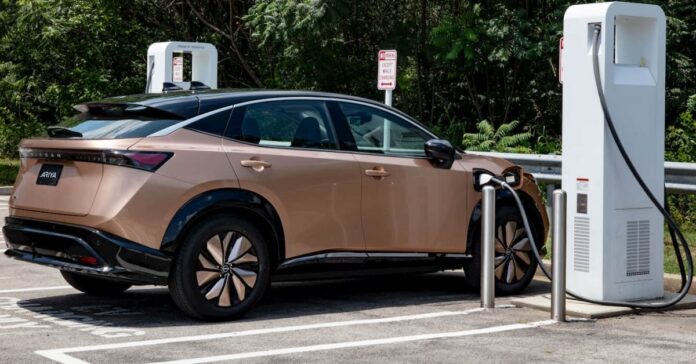Although several other Japanese automakers recently teamed up to develop new internal combustion engines (ICE), Nissan is standing by its commitment. Nissan said it will not invest in new gas or diesel-powered engines as the brand moves toward an electric future.
Although Nissan was once seen as a leader in the EV revolution, the brand has recently lost some ground.
Who can forget Nissan’s iconic electric hatchback? Nissan launched the LEAF in 2010 as the “world’s first mass-produced electric car.” The LEAF was the top-selling electric car globally until Tesla’s Model 3 surpassed it in early 2020.
Over a decade later, Nissan launched its second global EV and first electric SUV, the Nissan Ariya.
Although the Ariya got off to a slow start, Nissan’s “Intelligent Factory” is now running smoothly. Nissan revealed the Intelligent Factory line at its Tochigi plant in 2021 to slash costs and ramp EV output.
With LEAF sales down significantly in every major region, Nissan’s Ariya is picking up the slack. Nissan has sold 5,640 Ariya’s in the US, 5,187 in Europe, and another 601 in Japan through April 2024.

Nissan says ICE engine funding is not part of the future
Despite Japanese rivals Toyota, Mazda, and Subaru committing to developing more efficient next-gen ICE engines, Nissan is still looking toward an all-electric future.
Nissan has already revealed plans to go all-electric in Europe by 2030, but now the automaker says it has no plans for future ICE engine funding.

Speaking at Nissan’s Sunderland factory, Francois Bailly, the company’s senior vice president and chief planning officer for the AMIEO (Africa, Middle East, India, Europe, and Oceania) region, told the media (via Drive), “Our future is EV.”
“e-Power is a stepping stone to get there, and each market will go at their own pace,” Bailly explained, adding, “We’re not investing in new powertrain for ICE, that’s for sure.”
The news comes as Nissan preps to launch a wave of updated electric models, including a next-gen LEAF EV.

Nissan unveiled updated business plans for electrified vehicles to account for 60% of sales by 2030. In the US, Nissan is refreshing 78% of its line-up with new e-POWER and PHEV models.
In Europe, Nissan is launching six new EVs, aiming for a 40% electric car sales share by 2026. Nissan expects new innovations to reduce the costs of its next-gen EVs by 30%.
Electrek’s Take
Japanese automakers have been some of the biggest laggards as the industry shifts to all-electric. Despite Toyota, Mazda, and Subaru revealing plans to develop new ICE engines, Nissan is taking a different path.
By doubling down now, Nissan is setting itself up to be more competitive in the future. Meanwhile, Toyota and other Japanese rivals are moving backward.
Toyota’s EV sales are around 1% of total volume this year. That’s well below most rivals with double-digit or 100% electric car sales by now.
With more funding and resources for ICE vehicles, Toyota, Mazda, and Subaru are only pushing themselves further behind the pack.
What do you guys think? Can Nissan separate itself from its Japanese rivals? Let us know your thoughts in the comments below.


